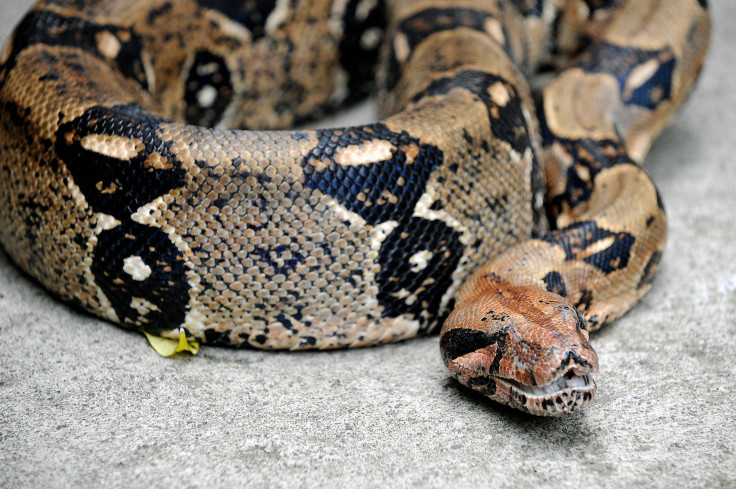8-Foot-Long Snake On The Loose After Escaping Connecticut Home, Pet Owner 'Very Concerned'
An eight-foot-long snake, which reportedly escaped from a house in Connecticut, is currently on the loose.
A video of the snake crossing the road in East Haddam on Saturday night was doing the rounds on social media. The snake's owner, Rob Peach, was unaware his pet had slithered out of the home. He thought the snake, a 30-pound boa constrictor, was hiding in the wall, Daily Voice reported.
“She likes to climb and she sits in the sun with us,” Peach told West Port News. “She’s literally part of the family.”
“The snake’s name is Tessie, it’s short for Tesla,” Peach – who used to work for Tesla – said, adding the reptile could be spotted during the day sunning itself, with its head about a foot in the air and mouth open.
“The owner was very concerned about it,” First Selectman Rob Smith said, especially since the colder temperatures aren’t good for the snake’s health. “It starts to have breathing problems.”
He also said that the owner was worried people might think the 20-year-old snake is aggressive.
“It’s very docile,” Smith said, adding the snake has apparently never eaten a live animal.
Residents were urged to inform authorities if they spotted the snake. They should contact the East Haddam Animal Control to come to pick her up at 860-873-5044.
Last month, a six-foot-long deadly snake was reported missing after it escaped from its enclosure at a home in Grand Prairie, Texas. The homeowner alerted the police after the reptile slithered out of its cage inside a home near Interstate 30 and Belt Line Road. The snake was identified as a West African Banded Cobra. “Animal Services, the owner, and a venomous snake apprehension professional actively searched for the snake inside and outside of the residence through the night with no success,” Grand Prairie Animal Service said at the time. According to the experts, the snake is a highly venomous reptile and is considered the largest of Africa’s true cobras. Authorities also warned residents not to approach or attempt to capture the reptile themselves.






















